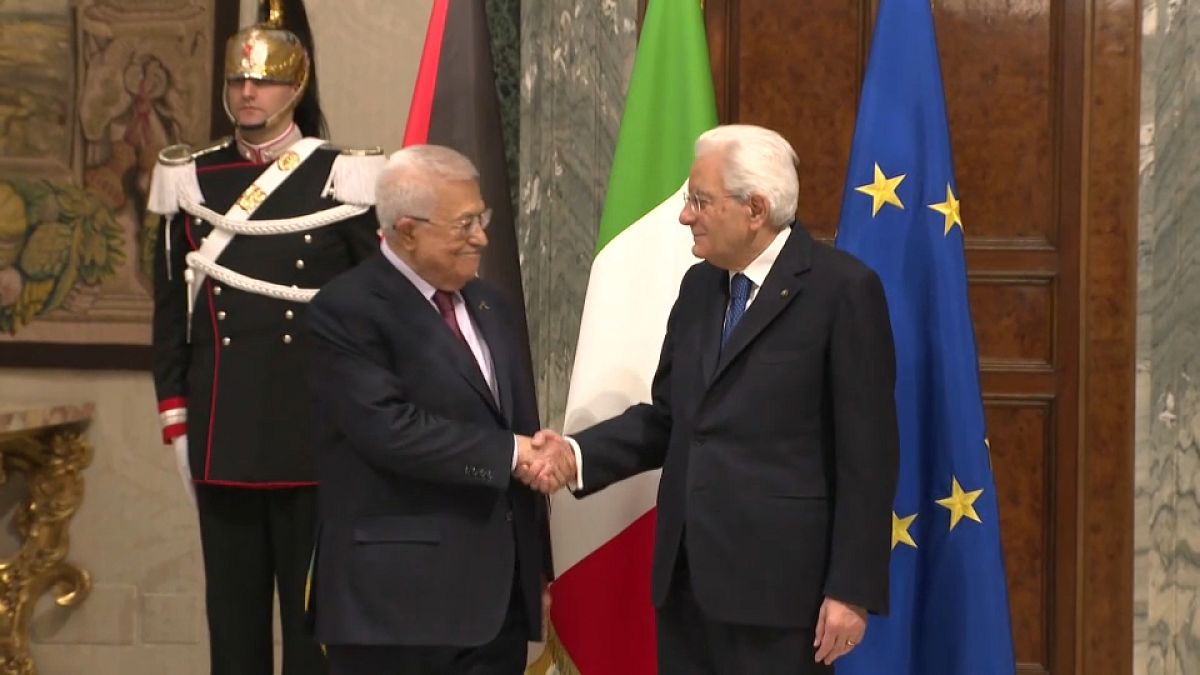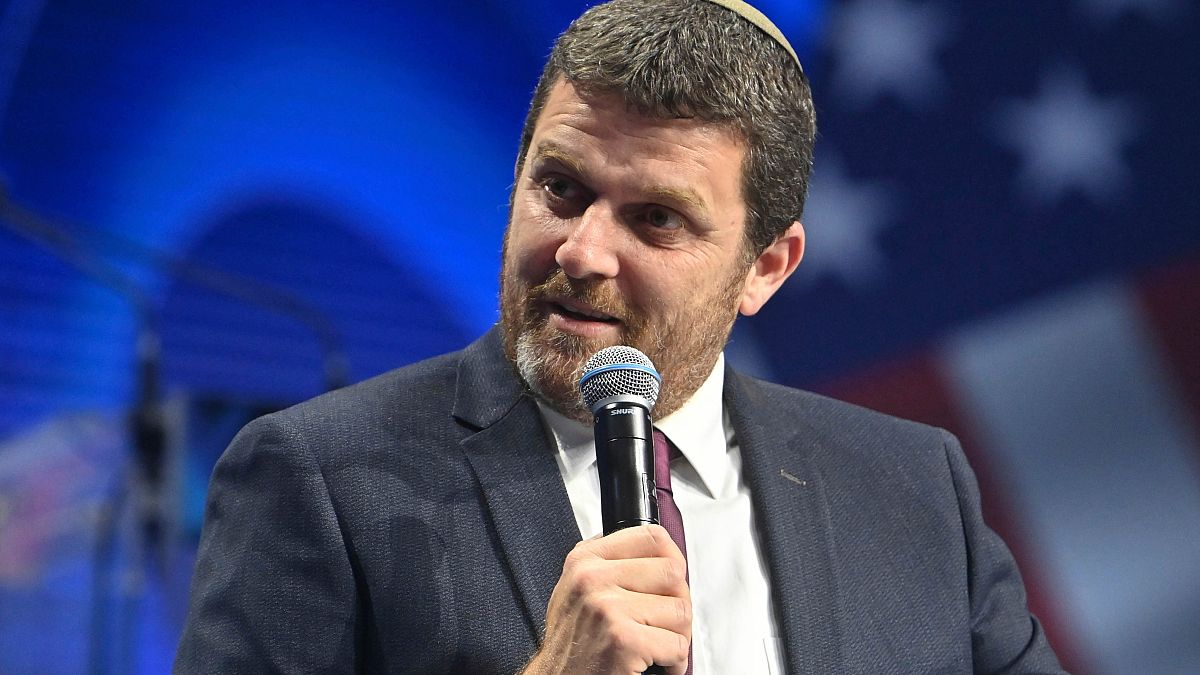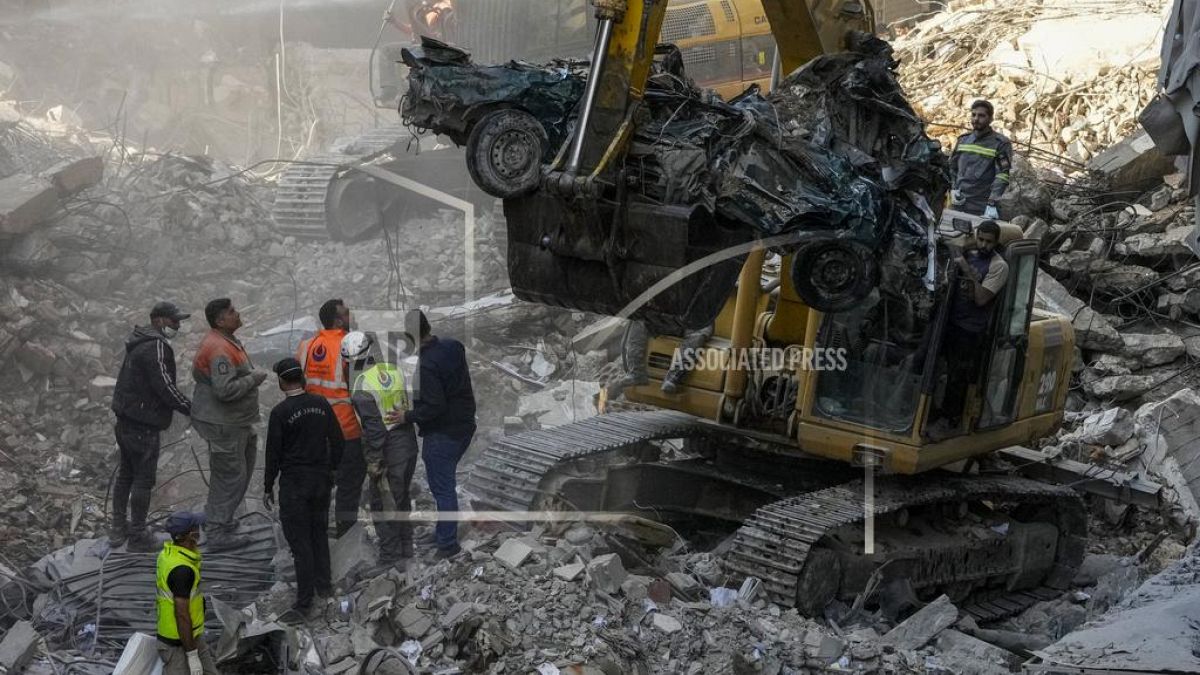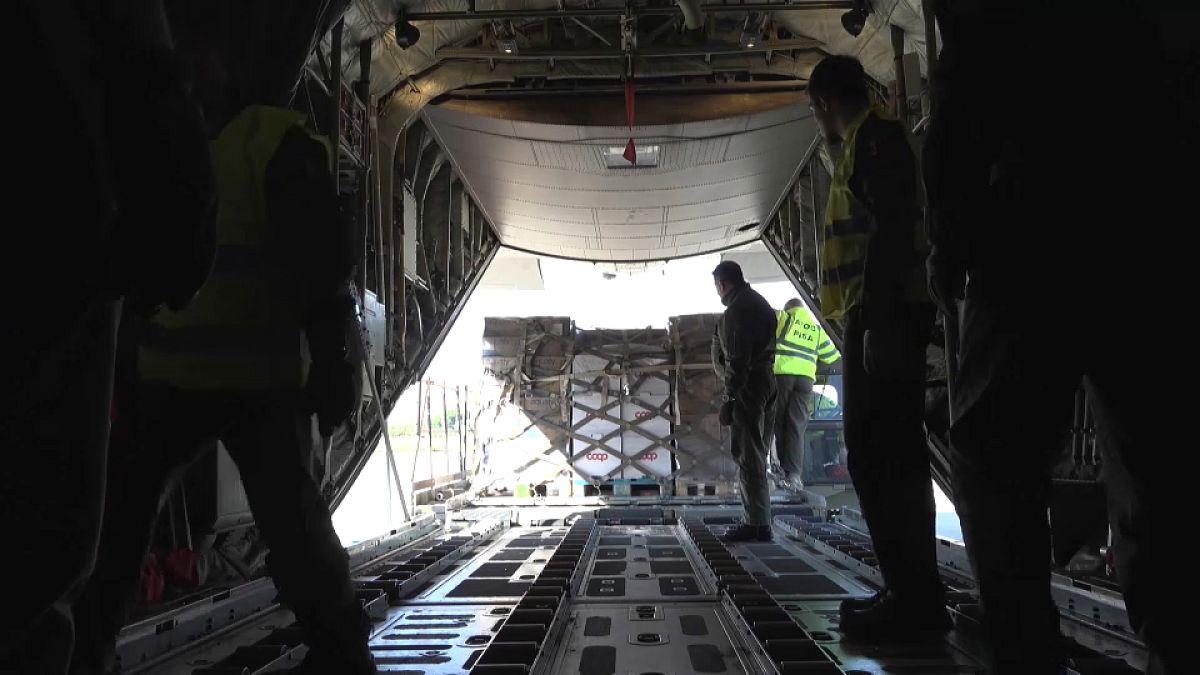World
EU leaders call for ‘humanitarian corridors and pauses’ in Gaza
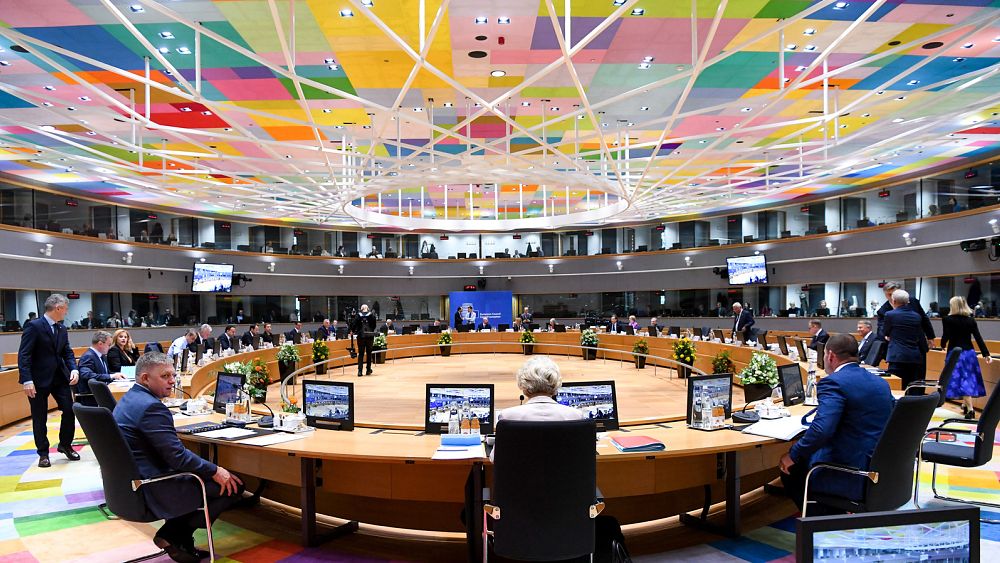
European Union leaders on Thursday called for “humanitarian corridors and pauses” to ensure aid reaches the besieged Gaza Strip during a summit in Brussels.
In a joint declaration, the 27 leaders expressed their “gravest concern for the deteriorating humanitarian situation in Gaza” and called “for continued, rapid, safe and unhindered humanitarian access and aid to reach those in need through all necessary measures including humanitarian corridors and pauses for humanitarian needs.”
“The aid needs to reach Gaza, unhindered and quickly,” European Commission President Ursula von der Leyen told reporters in the early hours of Friday morning. She announced that the bloc would send two more flights of humanitarian cargo to the Egyptian side of the Rafah crossing on Friday and sign a €40 million contract with UN agencies as part of its tripling of humanitarian aid.
The statement, released shortly before 22:00 CET, came following five hours of debate, where according to one diplomat a “small number” of countries had expressed preference for echoing UN Secretary-General Antonio Guterres’ call for a “humanitarian ceasefire.”
EU diplomats had been splitting hairs over the semantics of the call in preparation for the meeting. Spain’s Pedro Sánchez, whose government holds the rotating presidency of the Council of the EU, had led calls for a humanitarian ceasefire, but senior diplomats said countries such as Austria, Germany and Sweden feared such strong language risked undermining the bloc’s support for Israel’s right to self-defence.
Both Sánchez and Irish Prime Minister Leo Varadkar said they would prefer a humanitarian ceasefire ahead of the meeting, but that they were willing to compromise on the language. “As prime minister of Spain I would like to see a ceasefire (…) but if we don’t have those conditions, at least a humanitarian pause,” Sánchez said.
An EU official told Euronews that leaders had a “rich debate” in which there was willingness to find an agreement. “Everyone around the table, all 27 understood how important it is to have the unity and have one text. And we have a compromise that is acceptable to everyone because everyone has different circumstances at home,” she said.
The breakthrough comes after what has been described as a disjointed response to the conflict by the EU and its member states.
In a sign the bloc is moving in tandem with the US, President Joe Biden also expressed support for a “humanitarian pause” during a press conference on Wednesday, despite having vetoed a UN resolution including the same wording last week.
Over 50 trucks of aid have entered Gaza since Saturday carrying water, medicine and other supplies. But humanitarian agencies warn this is a drop in the ocean, as an estimated 100 trucks of aid entered the strip on a typical day before the conflict erupted. Fuel is also running dry, meaning water desalination plants and hospitals are at breaking point. Israel has opposed the delivery of fuel into the enclave for fear it can be used by Hamas to prepare for an offensive.
EU leaders said in their joint statement the bloc would “work closely with partners in the region (…) ensuring that such assistance is not abused by terrorist organisations.”
In a last-minute agreement struck over dinner, a reference to an “international peace conference” was included in a compromise to Pedro Sánchez, the EU official said. Spain’s premier has repeatedly called for such a conference to take place within the next six months, with the objective of recognising two states for Israel and Palestine.
Leaders did not, however, discuss how a peace conference may look or how it could be coordinated with the broader international community, but said that the EU is “ready to contribute to reviving a political process on the basis of the two-state solution.”
The EU official who spoke on condition of anonymity suggested leaders would continue to work together in response to the crisis engulfing the Middle East amidst the war between Israel and Hamas, saying Thursday’s declarations “are probably not going to be the last conclusions on the Middle East.”
The bloc is also looking to avoid regional escalation, and vowed to work closely with the Palestinian Authority to avoid the conflict from spreading into other states. Earlier on Thursday, European Parliament President Roberta Metsola led warnings that Russia and other of the bloc’s geopolitical rivals stood to gain from an escalation, and said the EU needed to do everything in its power to contain the conflict.
Leaders also debated the European Commission’s proposed top-up to its long-term budget, the so-called Multiannual Financial Framework (MFF), which foresees €100 billion in grants and loans including a €50 billion envelope in financial assistance to Ukraine. While the vast majority of member states back the pot of money for Ukraine, divisions persist on the broader top-up.
Von der Leyen stressed that the revision of the budget is needed to respond to natural disasters, manage migration and boost Europe’s industrial competitiveness in the world.
In efforts to ensure the Ukraine war does not slip from the top of the political priorities, leaders will kick off discussion during the second day of the summit on Friday discussing the next steps in its support to Kyiv.
This article was updated with quotes and information from the press conference.

World
Photos: Armenian Christians in Jerusalem’s Old City feel walls closing in

As Israel’s war on Gaza rages and Israeli attacks on people in the occupied West Bank continue, Armenian residents of the Old City of Jerusalem are fighting a different battle – quieter, they say, but no less existential.
One of the oldest communities in Jerusalem, the Armenians have lived in the Old City for more than 1,500 years, centred around the Armenian convent.
Now, the small Christian community has begun to fracture under pressure from forces they say threaten them and the multifaith character of the Old City – from Jewish settlers who jeer at clergymen on their way to prayer to a land deal threatening to turn a quarter of their land into a luxury hotel.
Chasms have emerged between the Armenian Patriarchate and the mainly secular community, whose members worry the church is not equipped to protect their dwindling population and embattled convent.
In the Armenian Quarter is Save the Arq’s headquarters, a structure with reinforced plywood walls hung with ancient maps inhabited by Armenians who are there to protest what they see as an illegal land grab by a real estate developer.
The land under threat is where the community holds events and also includes parts of the patriarchate itself.

After years of the patriarchate refusing to sell any of its land, Armenian priest Baret Yeretsian secretly “leased” the lot in 2021 for up to 98 years to Xana Capital, a company registered just before the agreement was signed.
Xana turned more than half the shares to a local businessman, George Warwar, who has been involved in various criminal offences.
Community members were outraged.
The priest fled the country and the patriarchate cancelled the deal in October, but Xana objected and the contract is now in mediation.
Xana has sent armed men to the lot, the activists say, attacking people, including clergy, with pepper spray and batons.
The activists say Warwar has the backing of a prominent settler organisation seeking to expand the Jewish presence in Jerusalem’s Old City.

The organisation, Ateret Cohanim, is behind several controversial land acquisitions in the Old City, and its leaders were photographed with Warwar and Xana Capital owner Danny Rothman, also known as Danny Rubinstein, in December 2023. Ateret Cohanim denied any connection to the land deal.
Activists filed suit against the patriarchate in February, seeking to have the deal declared void and the land to belong to the community in perpetuity.
The patriarchate refused, saying it owns the land.
Armenians began arriving in the Old City as early as the fourth century with a large wave arriving in the early 20th century, fleeing the Ottoman Empire. They have the same status as Palestinians in Israeli-occupied East Jerusalem – residents but not citizens, effectively stateless.

Today, the newcomers are mainly boys who arrive from Armenia to live and study in the convent although many drop out. Clergy say that’s partially because attacks against Christians have increased, leaving the Armenians – whose convent is closest to the Jewish Quarter and is along a popular route to the Western Wall – vulnerable.
Father Aghan Gogchyan, the patriarchate’s chancellor, said he’s regularly attacked by groups of Jewish nationalists.
The Rossing Center, which tracks anti-Christian attacks in the Holy Land, documented about 20 attacks on Armenian people and property and church properties in 2023, many involving ultranationalist Jewish settlers spitting at Armenian clergy or graffiti reading “Death to Christians” scrawled on the quarter’s walls.
World
As wars rage around them, Armenian Christians in Jerusalem's Old City feel the walls closing in
JERUSALEM (AP) — As the war in Gaza rages, Syria’s government transforms, and the Israeli-occupied West Bank seethes, Armenian residents of the Old City of Jerusalem fight a different battle — one that is quieter, they say, but no less existential.
One of the oldest communities in Jerusalem, the Armenians have lived in the Old City for decades without significant friction with their neighbors, centered around a convent that acts as a welfare state.
Now, the small Christian community has begun to fracture under pressure from forces they say threaten them and the multifaith character of the Old City. From radical Jewish settlers who jeer at clergymen on the way to prayer, to a land deal threatening to turn a quarter of their land into a luxury hotel, residents and the church alike say the future of the community is in flux.
Their struggle, playing out under the cover of many regional crises, reflects the difficulty of maintaining a non-Jewish presence in a Jerusalem where life has hardened for religious minorities in the Old City. Chasms have emerged between the Armenian Patriarchate, the traditional steward of community affairs, and the mainly secular community itself. Its members worry that the church is not equipped to protect their dwindling population and embattled convent from obsolescence and takeover.
A tent in a parking lot
Walk through the narrow passageways of the Armenian Quarter, past a perpetually manned guard post and into an open lot with a towering pile of shrapnel crested with the Armenian flag. You’ve arrived at the headquarters of the “Save the Arq” movement.
It’s where some residents of the Armenian Quarter have decamped, in a structure with reinforced plywood walls hung with ancient maps, to protest what they see as an illegal land grab by a controversial real estate developer.
The land under threat is where the community parks their cars and holds group dinners. It also includes parts of the patriarchate itself. It’s been a receiving point for those fleeing the mass killing of some 1.5 million Armenians by Ottoman Turks, widely viewed by scholars as the first genocide of the 20th century. Turkey denies the deaths constituted genocide.
The patriarchate has batted away offer after offer to sell the land. That changed in 2021, when an Armenian priest, Baret Yeretsian, signed a fraudulent deal leasing the lot for up to 98 years to a company called Xana Capital, registered just before the agreement was signed.
Xana then turned over half the shares to a local businessman, George Warwar, who has been involved in various criminal offenses, according to court filings, including a 24-month prison sentence for armed robbery, and has declared bankruptcy in the past.
In court documents seen by the AP, the patriarchate has admitted that Warwar bribed the priest and that the two had sustained “various inappropriate connections” leading up to the signing of the deal.
Community members were outraged when they found out, prompting the priest to flee the country. The patriarchate cancelled the deal in October, but Xana fought back, and the two are now in mediation over the contract. Xana Capital has since sent armed men to the lot, the activists say, attacking members of the community, including clergy, with pepper spray and batons.
With the future of the site unclear, the activists say they appealed to the patriarchate to find out what was going on. The activists say that Warwar has the backing of a prominent settler organization seeking to expand Jewish presence in Jerusalem’s Old City. The organization, Ateret Cohanim, is behind several controversial land acquisitions in the Old City, and its leaders were photographed meeting with Warwar and Danny Rothman, the owner of Xana Capital who also uses the last name Rubinstein, in December 2023. The organization denied any connection to the land deal.
“But as soon as the deal was signed, the patriarchate went into silent mode, bunker mode,” said Setrag Balian, 27, a ceramicist. “We decided that we have to take action and not once again be on the sidelines, watching and hoping that the patriarchy will take the right steps.”
So Balian and fellow resident Hagop Djernazian collected some 300 signatures from the community and filed suit against the patriarchate in February, asking them to declare the deal void and to say, for posterity, that the land belongs to the community.
In response, the patriarchate said it owns the land, not the community. Xana, meanwhile, filed a response calling the activists antisemitic squatters. The patriarchate’s response and Xana’s words, the activists said, leave open the chance that the land could be leased again in the future.
“It made us feel like we could not trust the institution who brought us to this day to solve this problem, to solve this conflict,” said Hagop Djernazian.
The patriarchate declined to comment on the land deal for this article, saying it could impact mediation efforts underway with Xana.
A single observer
Inside the Armenian convent, the clergy are hushed, pathways empty.
On a recent afternoon, priests in black robes rang the bell for daily prayers at the St. James Cathedral, the storied Armenian church occupying one of the highest points in the Old City. Filing into the darkened space, the men and the young seminary choir were joined only by an Israeli tour group and one Armenian woman who’d come to pray.
Father Parsegh Galamterian, church sacristan, has watched prayers thin out over the years, as the Armenian population in the quarter has shrunk from about 15,000 in 1948, the founding of the state of Israel, to around 2,000.
“The future is difficult,” he says.
Armenians began arriving in the Old City as early as the 4th century, inspired by the religious significance of the city to Christianity. In the early 20th century, they were joined by masses of Armenians who flocked to Jerusalem after being driven out of the Ottoman Empire. Theirs is the smallest quarter in the Old City, home to Armenians with the same status as Palestinians in Israeli-annexed east Jerusalem — residents but not citizens, effectively stateless.
Today, the newcomers are mainly boys who arrive from Armenia to live and study in the convent. Some stay, but many drop out of studies. Clergy say that’s partially because attacks against Christians have ramped up within the walls of the Old City, leaving the Armenians – whose convent is closest to the Jewish Quarter and is tucked along a popular route to the Western Wall – vulnerable.
Father Aghan Gogchyan, the patriarchate’s chancellor, said he’s regularly attacked by groups of Jewish fundamentalists.
He recalled one instance, a month ago, when clergy were headed to prayer. He was intercepted by a group of settlers, who asked if they were Christians.
“’You know that you don’t have a future here in the Holy Land. You’re not going to continue to live here,” he recalled one man saying. “’This is our country. We are going to eradicate you.”
“This is the word he used,” said Gogchyan. “We are going to eradicate you from our country.”
The Rossing Center, which tracks anti-Christian attacks in the Holy Land, documented about 20 attacks on Armenian observers, Armenian private property, and church properties in 2023, many involving ultranationalist Jewish settlers spitting at Armenian clergy or graffiti reading “Death to Christians” scrawled on the quarter’s walls.
“What is being said behind closed doors is that Jerusalem is becoming a place that is no longer hospitable to Christianity,” said Daniel Seidman, a Jerusalem lawyer and peace activist. “You can see the needle moving. The spike in hate crimes is not part of this plan, but it’s part of the impact.”
The incidents send a clear message to the next generation, said Gogchyan: stay away.
“The new generation doesn’t want to be in the center of the conflict,” said Gogchyan. “They’re building their future in different countries.
Despite the fractures, Armenian clergy and activists told the AP they want the same thing: a continued presence in the Old City.
“Some people feel helpless and hopeless and they want to leave,” said Balian. “But I think the majority sees that there is a struggle going on. It gives us a meaning. It gives us a purpose. It gives us a reason to stay here.”
___
Associated Press religion coverage receives support through the AP’s collaboration with The Conversation US, with funding from Lilly Endowment Inc. The AP is solely responsible for this content.
World
Islamist group running Syria has mixed record over governance in province, ruled with 'iron fist'
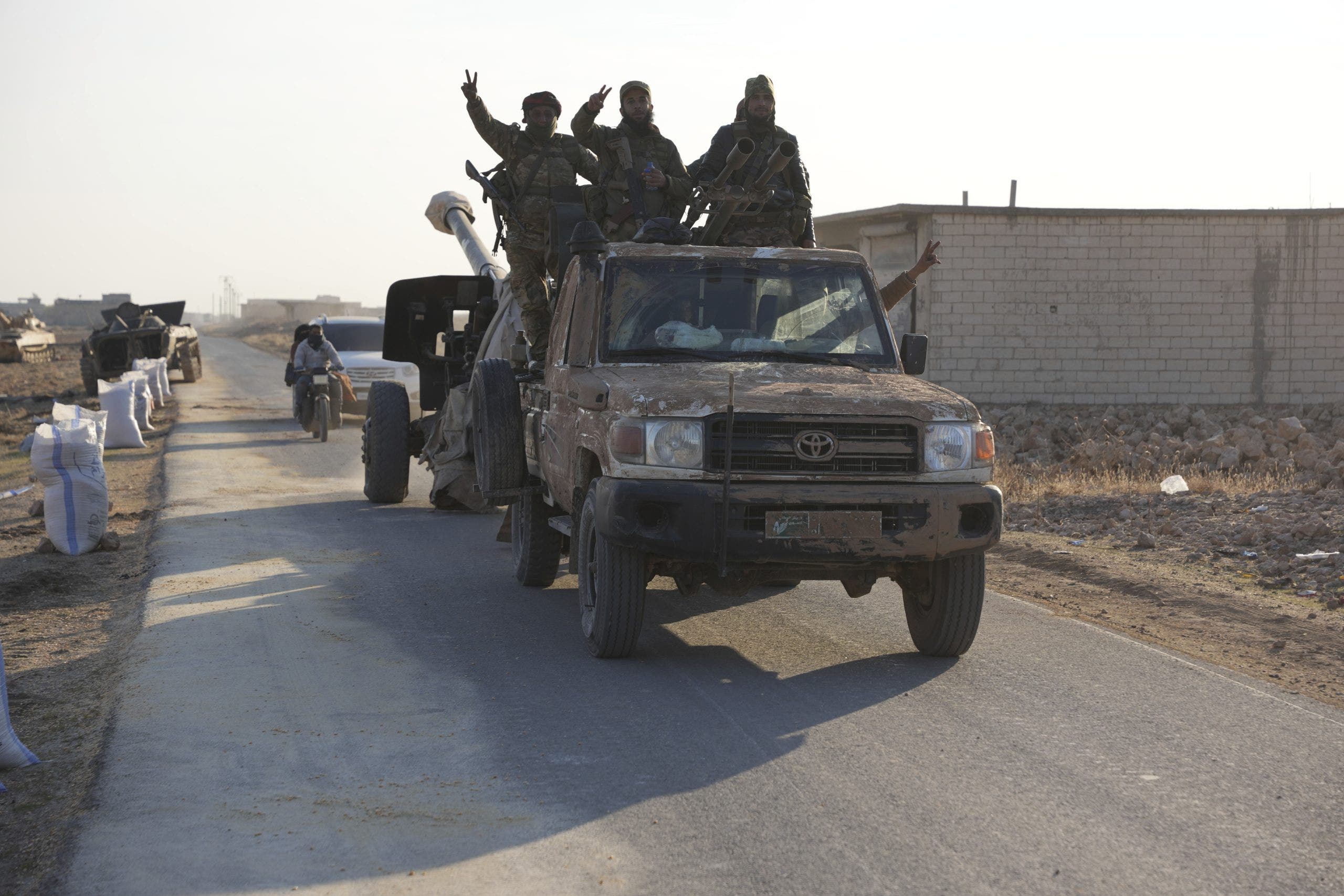
Following Bashar al-Assad’s fall from power, a new government is taking shape in Syria that has many wondering if it will moderate its Islamist stance or, as some have predicted, function like the Taliban in Afghanistan.
The U.S.-designated terrorist group Hayat Tahrir Al-Sham (HTS) had been ruling the Idlib Governate in northwest Syria and set up its own regime known as the Syrian Salvation Government and said it had shed its global Jihadist aims for a focus on local governance. In Idlib, HTS created a bureaucratic system and various ministries to administer some public services, including public safety.
“By all accounts, it has ruled with an iron fist there,” Natasha Hall, senior fellow with the Middle East Program at the Center for Strategic and International Studies, told Fox News Digital.
At its height, HTS ruled over approximately 2 million people in Idlib Province. Its leader, Mohammed al-Golani attempted to rebrand HTS and distance the group from the global jihadist elements of al Qaeda and instead focused on local issues in Idlib.
ASSAD PAINTS HIMSELF AS ‘CUSTODIAN’ TO SYRIA AS PICTURE UNFOLDS ON COLLAPSE OF DAMASCUS
Rebel forces seized Mengh Airbase and the city of Tel Rifaat in the Aleppo countryside on Dec. 1, 2024 following clashes with the Syrian Democratic Forces and Syrian regime forces. (Photo by Rami Alsayed/NurPhoto via Getty Images)
Questions still remain about how al-Golani would rule all of Syria. Some Syria watchers who monitored the groups record in Idlib caution that HTS was no democratic regime.
Hall, an expert on Syria, said that HTS exhibited mixed behavior in Idlib, including kicking out Christians, although Hall noted that she knows personally of religious minorities, including Alawites, who did live peacefully in Idlib.
Other aspects of their rule in Idlib are more troubling.

People wave guns in the air as they gather to celebrate the fall of the Syrian regime in Umayyad Square on Dec. 8 in Damascus, Syria. (Ali Haj Suleiman/Getty Images)
ASSAD ARRIVES IN MOSCOW, IS GRANTED ASYLUM BY RUSSIA
“In terms of their iron fist, HTS tried to do away with dissent when there were protests against them. It was reported that they had killed a famous political activist, Raed Fares. There were also recent protests in Idlib over people who have died in detention under HTS custody,” Hall said.
HTS was less than tolerant and known for suppressing political dissent. Hall also noted she personally knows of people who were “beat up” by HTS fighters.
Golani did oversee a de-emphasis on strict interpretations of Islam and limited the power of the feared morality police that monitored women’s public wardrobe. The problem now, according to Hall, is not necessarily HTS’ previous record of governance in Idlib, but the power vacuum that is left with Assad ousted.
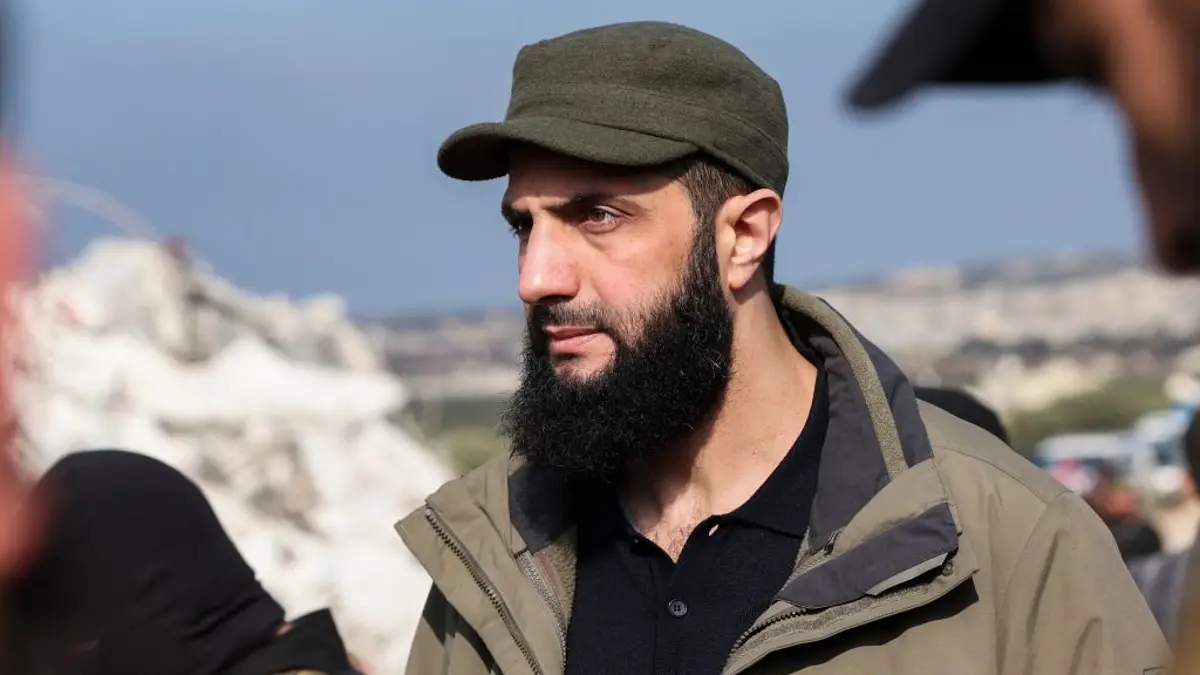
Hayat Tahrir al-Sham chief Abu Mohamed al-Golani checks the damage following an earthquake in the village of Besnaya in Syria’s rebel-held northwestern Idlib province at the border with Turkey, on Feb. 7, 2023. (Photo by Omar HAJ KADOUR / AFP)
“Everyone is going to be grabbing for power and influence,” Hall said, adding that the U.S. and the West need to mitigate risk and insure a more stable and peaceful future for Syria and deal with the vulnerabilities of each potential governing group.
Tammy Palacios, program manager of the Priority Sustainable Counterterrorism program at the New Lines Institute and who closely monitors Syria, noted that although al-Golani made significant efforts to disconnect from his Jihadist past, moderation at other levels of HTS remains less clear.
HTS security forces were known to “arrest, judge, torture, detain, and kill individuals as a form of sharia law enforcement” exercising control in Idlib. Elements of the HTS administration in Idlib also educated and influenced the population in accordance with a hardline interpretation of Sharia law.
SYRIA’S UNACCOUNTED FOR CHEMICAL WEAPONS ‘EXTREMELY WORRYING,’ UN OFFICIAL SAYS
Since toppling the Assad dynasty, HTS set up a transitional government, called the Syrian Salvation Government, and named an interim prime minister, Mohammed al-Bashir. HTS leader al-Golani and the interim prime minister met with the former prime minister of Syria during the final months of the Assad regime, Muhammad Ghazi Al-Jalali, who decided to remain in his home in Damascus when the government fell.
During their lightning two-week advance to conquer Syria, HTS promised to protect the rights of all Syrians, regardless of faith or ethnicity, and also promised to protect Shia religious sites. When the rebels finally entered Damascus and Assad fled, al-Golani ordered his fighters not to attack government ministries and, along with Jalali, ensured that the day-to-day work of the government would continue.
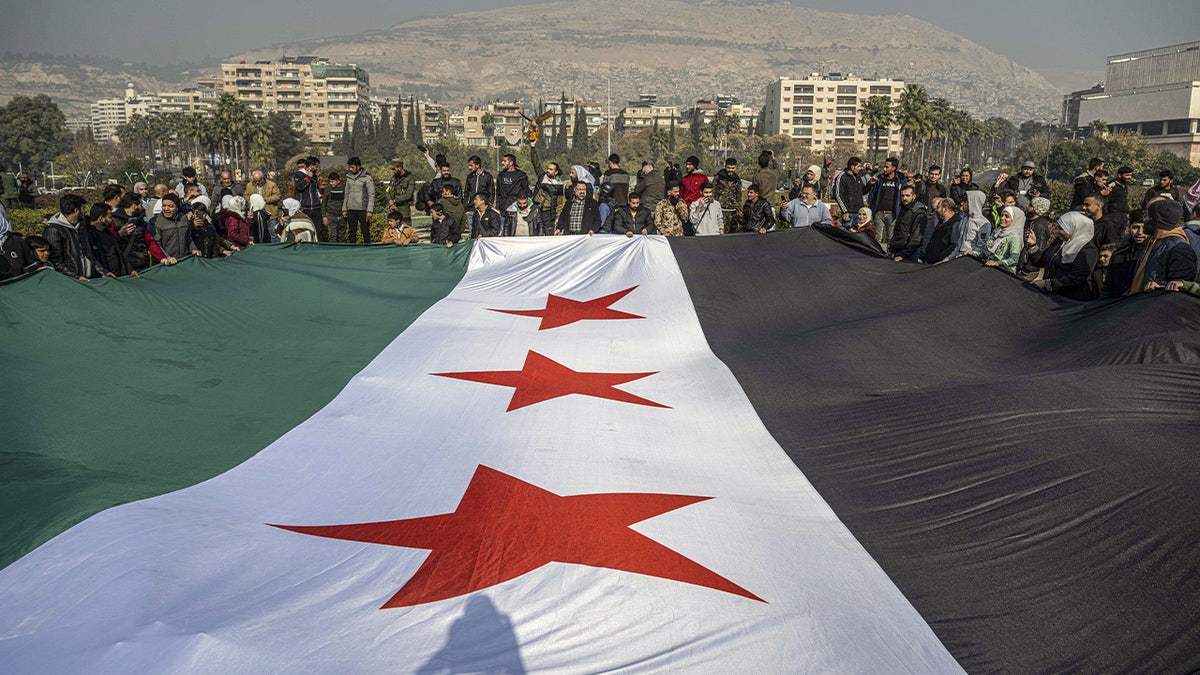
Syrians gather at Umayyad Square to celebrate the collapse of 61 years of Baath Party rule in Damascus, Syria, on Dec. 9, 2024. (Murat Sengul/Anadolu via Getty Images)
Al-Golani, who has a $10 million bounty on his head from the U.S., seeks to present a toned-down version of the radical Islamism that has defined his years of fighting in Syria and in Iraq against American troops. Al-Golani was detained by the U.S. military in the first decade of this century. When the Syrian uprising against Assad broke out, al-Golani built a new organization called Jabhat al-Nusra.
He also had once pledged allegiance to al Qaeda leader Ayman al-Zawahiri, but he officially broke ties with the group in 2016, and Nusra became HTS in 2017. Many observers of HTS at the time critiqued the break as cosmetic, but al-Qaeda actually condemned the creation of HTS, creating further divides between the groups.
TRUMP URGES US TO STAY OUT OF SYRIAN CIVIL WAR, BLAMING OBAMA FOR FAILURE AS ISLAMISTS CLOSE IN ON CAPITAL
While HTS governed Idlib in northeast Syria, the group targeted rival Islamist groups, including Ahrar Al-Sham, Hurras Al-Din and other Jihadist groups tied to al Qaeda and ISIS. Much like U.S. negotiations with the Taliban in Afghanistan, combating terrorism and ensuring that Syria does not become a safe haven for terrorists will be a prerequisite for any recognition by the U.S. and other allies.
Secretary of State Antony Blinken confirmed on Saturday that the U.S. has had direct contact with HTS since it overthrew the regime of Bashar al-Assad. HTS has already said it would cooperate with the U.S. in the search for Austin Tice, the American journalist missing in Syria since 2012 and who was believed to be held captive by the Assad regime. The initial contact with the rebel group and their promise to work with the U.S. to bring Tice home could further legitimize the group as it looks to consolidate its control over post-Assad Syria.
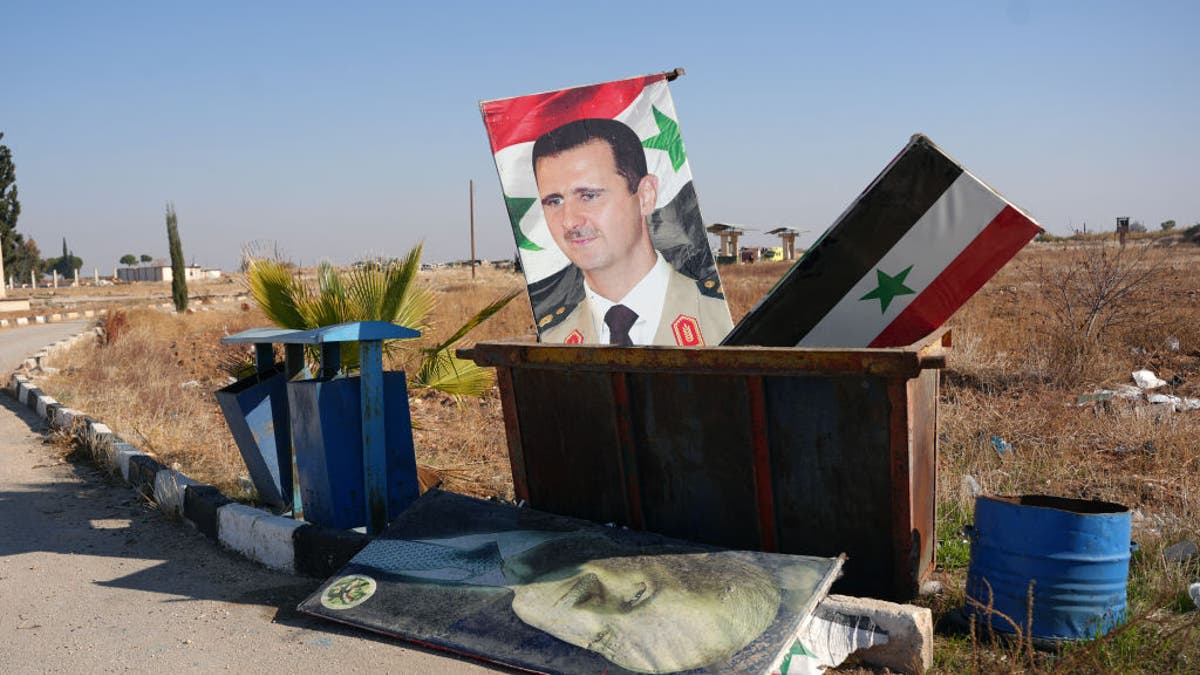
A picture taken at the entrance of the Kweyris military airfield in the eastern part of Aleppo province on Dec. 3, 2024 shows a portrait of Syrian President Bashar al-Assad and a national flag in the garbage dumpster following the takeover of the area by rebel groups. (Photo by RAMI AL SAYED/AFP via Getty Images)
The U.S. and U.K. are considering whether to remove HTS off its foreign terrorist list, which will be important if HTS consolidates its rule over Syria. Hall says that HTS must establish a checklist to implement in order to get itself removed from the terrorist designation list.
“It’s vitally important right now, and it’s important to do it quickly, because if a designated terrorist group is running a country, it could have devastating humanitarian and economic effects, the likes of which we have not seen in the past decade,” she said.
Fox News Digital’s Benjamin Weinthal contributed to this report.
-

 Business1 week ago
Business1 week agoOpenAI's controversial Sora is finally launching today. Will it truly disrupt Hollywood?
-

 Politics5 days ago
Politics5 days agoCanadian premier threatens to cut off energy imports to US if Trump imposes tariff on country
-
/cdn.vox-cdn.com/uploads/chorus_asset/file/25782636/247422_ChatGPT_anniversary_CVirginia.jpg)
/cdn.vox-cdn.com/uploads/chorus_asset/file/25782636/247422_ChatGPT_anniversary_CVirginia.jpg) Technology6 days ago
Technology6 days agoInside the launch — and future — of ChatGPT
-
/cdn.vox-cdn.com/uploads/chorus_asset/file/25789444/1258459915.jpg)
/cdn.vox-cdn.com/uploads/chorus_asset/file/25789444/1258459915.jpg) Technology4 days ago
Technology4 days agoOpenAI cofounder Ilya Sutskever says the way AI is built is about to change
-

 Politics4 days ago
Politics4 days agoU.S. Supreme Court will decide if oil industry may sue to block California's zero-emissions goal
-
/cdn.vox-cdn.com/uploads/chorus_asset/file/25546252/STK169_Mark_Zuckerburg_CVIRGINIA_D.jpg)
/cdn.vox-cdn.com/uploads/chorus_asset/file/25546252/STK169_Mark_Zuckerburg_CVIRGINIA_D.jpg) Technology4 days ago
Technology4 days agoMeta asks the US government to block OpenAI’s switch to a for-profit
-

 Politics6 days ago
Politics6 days agoConservative group debuts major ad buy in key senators' states as 'soft appeal' for Hegseth, Gabbard, Patel
-

 Business3 days ago
Business3 days agoFreddie Freeman's World Series walk-off grand slam baseball sells at auction for $1.56 million
